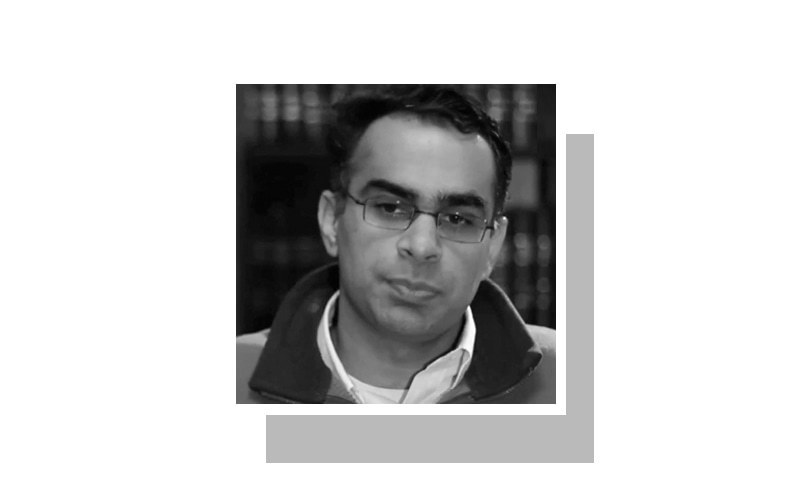MUMTAZ Qadri, more than being defended by former chief justice of the Lahore High Court, Khawaja Mohammad Sharif, former LHC judge Mian Nazir Akhtar, and hundreds of other lawyers, is being lionised by these professed defenders of law and justice in Pakistan. The attorney general’s office has reportedly lost the case file and the state has yet to formally instruct a prosecutor to oppose the appeal of Salman Taseer’s self-confessed killer. Is this the picture of just a broken state or a broken society as well?
Shahid Hamid, MD KESC, was murdered in 1997 along with his driver and guard. An anti-terror court convicted Saulat Mirza for the murder and handed him the death sentence in 1999. His final appeal to the Supreme Court stands dismissed. The law required him to be hanged within days of the president turning down his mercy petition. But he wasn’t. Sixteen years since his conviction Mirza is alive and well in a state prison. Why? Because the MQM reportedly wanted the execution stayed and motivated by political expediency Prime Minister Nawaz Sharif obliged despite lack of legal authority to do so.
Parliament passed the 21st Amendment with an overwhelming majority. It is meant to ensure that courts and concepts such as due process and burden of proof don’t stand in the way of killing those our law-enforcement agencies deem bad guys. This amendment is bad law and many of those who voted for it knew so. Senator Raza Rabbani cried while supporting this obfuscation of our Constitution. He probably cried out of self-pity. What else can you do except feel sorry for yourself when you willingly let party diktat trump your conscience?
The other day Senator Rabbani wanted the interior minister to demonstrate moral courage and resign over his ministry’s pigheaded insistence that no madressahs in Punjab receive assistance from Muslim countries. But in our elite culture power comes with no responsibility. Shahid Khaqan Abbasi is probably as clean a minister as one can find in the present dispensation. And yet power compulsions are such that even he couldn’t muster the courage to accept responsibility for the petrol crisis and walk away from the flag and the protocol.
Is there anything is common in all of the above? These divergent facts and details portray the picture of a state and society that has fallen into a legal and moral abyss. Why is rule of law associated with civilised societies? Because it reflects the consensus within a society over rules by which its members are willing to bind their conduct. Law might not always possess moral authority, but in rule-of-law societies it is a trigger for action, which shapes behaviours and builds norms, and becomes the basis for rewarding individuals or holding them accountable.
Is there consensus over any rules of behaviour in our society? Do we even agree that life is sacrosanct and murder vile? The Salmaan Taseer murder case is the mirror that projects the reality of our state and society in all its ugliness. This governor of our largest province was not killed because he said derogatory things about the Prophet (PBUH). He was killed because he stood up to even the odds for a poor Christian woman charged with blasphemy in a society where criticism of the abuse of the blasphemy law has come to be equated with blasphemy itself.
Mumtaz Qadri, whose job was to secure Salmaan Taseer, chose to kill him instead and confessed that the murder was premeditated. One understands what Taseer was trying to do and what Qadri did. But what is it that former justices Sharif and Akhtar along with hundreds of lawyers are trying to do? Are they saying that it is OK to murder someone who in your subjective opinion doesn’t have the right amount of reverence for the Prophet? Or that taking human life is justified so long as it is claimed to have been done out of love for the Prophet?
Qadri’s defence is neither insanity nor provocation. It is that his self-assumed moral obligation emerging from his understanding of his faith is complete justification for the crime of murder. Aren’t Qadri’s defenders then saying that murder is no crime if it is committed to punish a perceived sinner? That one’s moral obligation to one’s faith ought to override one’s legal obligation to the law? And further that courts must understand that righteous killing in the name of religion ought to be celebrated and not punished?
Qadri’s defenders do not want him to face the legal consequences of his violent actions in the name of religion. Saulat Mirza’s defenders do not want him to face the legal consequences of his violent actions in the name of ethnic loyalty. So for the MQM, is killing indefensible if in the name of religion but pardonable when inspired by a partisan cause? The reaction of the state in either case is identical: it is willing to cede the writ of the law and patronise perpetrators of violence in the name of expediency.
There can exist no rule of law if a society allows individual morality to override the law and the state uses the gulf between law and its implementation as a policy measure to accommodate partisan interests. Rule of law is valuable for it defines the agreement within the society over concepts of right and wrong. Much as this society is confused about whether Qadri is a righteous hero or an abhorrent killer, it is confused about whether Senator Rabbani crying over the loathsome 21st Amendment makes him a conscientious legislator or a hypocrite.
What’s worse — Qadris and Mirzas who claim human lives out of misplaced loyalty to faith or ethnicity, or their defenders who project vile criminals as patron saints? Legislators who don’t have the sense to understand whether the 21st Amendment is a good or bad law, or legislators who know full well what a stain it is on our fundamental law and sense of propriety and are still willing to sign on the dotted line? Perpetuating injustice through unjust laws or by deliberately enhancing the gap between law and its implementation?
The writer is a lawyer.
Twitter: @babar_sattar
Published in Dawn, February 2nd, 2015
On a mobile phone? Get the Dawn Mobile App: Apple Store | Google Play










































